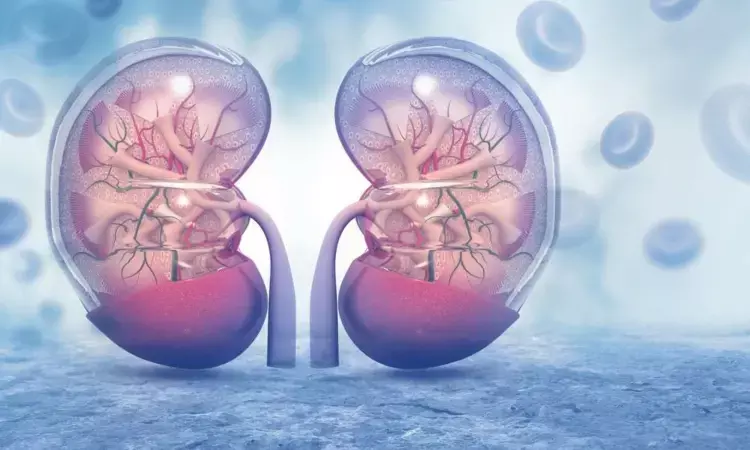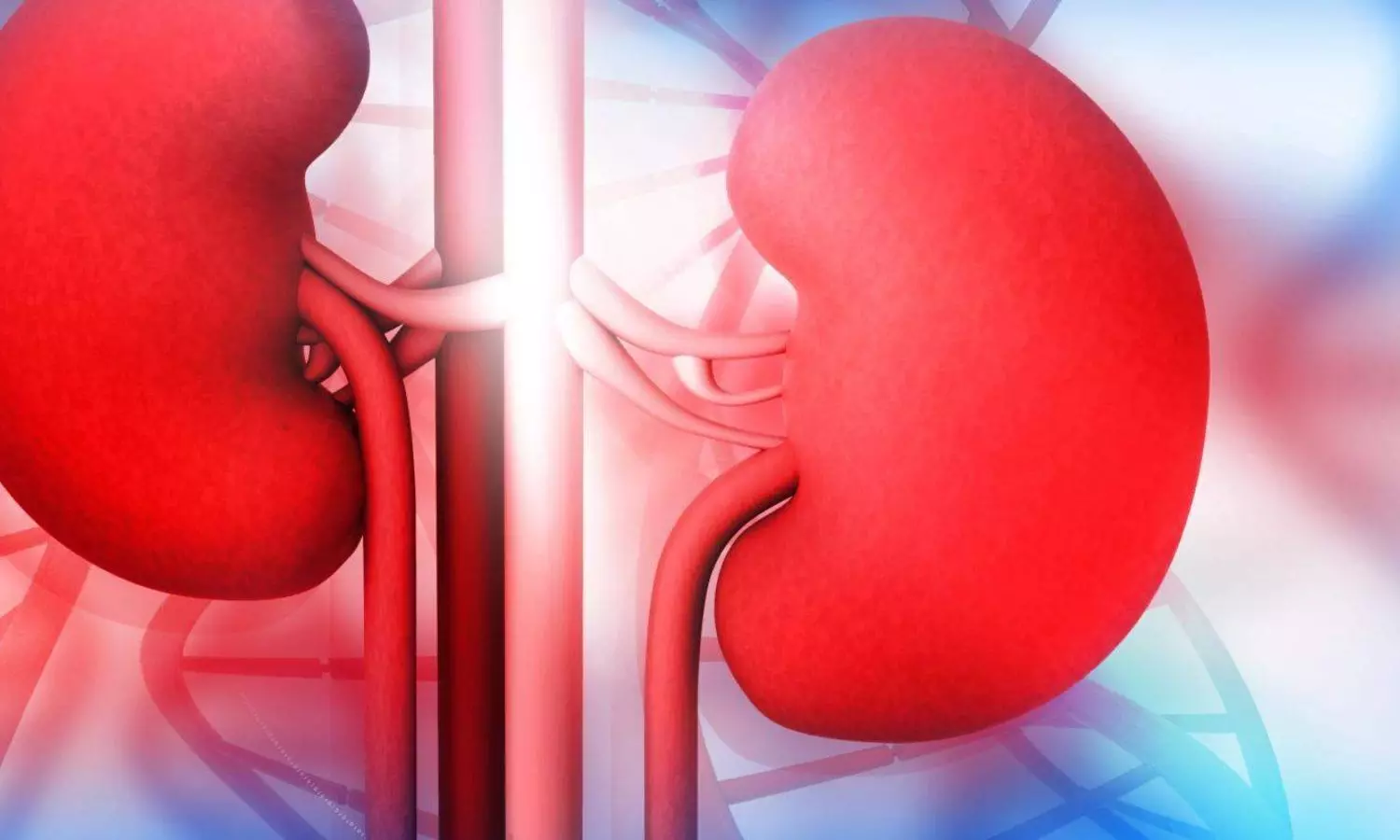- Home
- Medical news & Guidelines
- Anesthesiology
- Cardiology and CTVS
- Critical Care
- Dentistry
- Dermatology
- Diabetes and Endocrinology
- ENT
- Gastroenterology
- Medicine
- Nephrology
- Neurology
- Obstretics-Gynaecology
- Oncology
- Ophthalmology
- Orthopaedics
- Pediatrics-Neonatology
- Psychiatry
- Pulmonology
- Radiology
- Surgery
- Urology
- Laboratory Medicine
- Diet
- Nursing
- Paramedical
- Physiotherapy
- Health news
- Fact Check
- Bone Health Fact Check
- Brain Health Fact Check
- Cancer Related Fact Check
- Child Care Fact Check
- Dental and oral health fact check
- Diabetes and metabolic health fact check
- Diet and Nutrition Fact Check
- Eye and ENT Care Fact Check
- Fitness fact check
- Gut health fact check
- Heart health fact check
- Kidney health fact check
- Medical education fact check
- Men's health fact check
- Respiratory fact check
- Skin and hair care fact check
- Vaccine and Immunization fact check
- Women's health fact check
- AYUSH
- State News
- Andaman and Nicobar Islands
- Andhra Pradesh
- Arunachal Pradesh
- Assam
- Bihar
- Chandigarh
- Chattisgarh
- Dadra and Nagar Haveli
- Daman and Diu
- Delhi
- Goa
- Gujarat
- Haryana
- Himachal Pradesh
- Jammu & Kashmir
- Jharkhand
- Karnataka
- Kerala
- Ladakh
- Lakshadweep
- Madhya Pradesh
- Maharashtra
- Manipur
- Meghalaya
- Mizoram
- Nagaland
- Odisha
- Puducherry
- Punjab
- Rajasthan
- Sikkim
- Tamil Nadu
- Telangana
- Tripura
- Uttar Pradesh
- Uttrakhand
- West Bengal
- Medical Education
- Industry
Elevated levels of Lipoprotein (a) levels may be used as tool to monitor Diabetic Kidney disease

People's Republic of China: Researchers from China found that elevated levels of lipoprotein (a) can be used as a tool to monitor Diabetic Kidney disease as it is associated with decreased GFR, increased proteinuria, and renal pathological progression. The study results were published in the Journal of Diabetes and its Complications.
Diabetic kidney disease (DKD) is a major complication of diabetes and is the leading cause of the end-stage renal disease (ESRD) thus affecting the quality of life of patients. Other contributing factors for renal insufficiency are hypertension, dyslipidemia, obesity, renal vascular diseases, acute kidney injury, etc. Dyslipidemia is common in diabetes mellitus, and its role in the pathogenesis of DKD is not clearly understood. Due to the scarcity of data currently on the role of lipid metabolism in diabetic kidney disease (DKD), Anni Wang and the team from the People's Republic of China conducted a study to investigate the correlation between lipid metabolism and renal function as well as renal pathological grade/score in DKD patients.
Out of 224 patients who were diagnosed with DKD by pathological examination and were retrospectively analyzed, 74 patients were further evaluated by DKD pathological grade/score. Serum lipoprotein (a) [Lp (a)] levels in DKD patients with different chronic kidney disease (CKD) stages was investigated by ANOVA. The relationship between Lp (a) and renal function-related indicators and the DKD pathological grade/score was evaluated by Spearman correlation analysis. The value of Lp (a) in assessing renal function and pathological changes were analyzed by the receiver operating characteristic (ROC) curve.
Results
- Different stages of CKD showed significant differences in Lp (a) levels (H = 17.063, p = 0.002) and glomerular grades (H = 12.965, p = 0.005).
- The various levels with which Lp (a) levels correlated were serum creatinine, blood urea nitrogen, estimated glomerular filtration rate, 24-h proteinuria, urine microalbumin, urine albumin creatinine ratio, glomerular basement membrane thickness, and glomerular grade.
- ROC curve demonstrated good performance of Lp (a) as an indicator to assess CKD stage 4–5, 24hUPro > 3.5 g, and glomerular grade III-IV.
Thus, elevated levels of lipoprotein (a) can be used as an indicator of DKD.
Further reading: Wang A, Zhang S, Li Y, Zhu F, Xie B. Study on the relationship between lipoprotein (a) and diabetic kidney disease. Journal of Diabetes and its Complications. 2023;37(1):108378. doi: 10.1016/j.jdiacomp.2022.108378
BDS, MDS
Dr.Niharika Harsha B (BDS,MDS) completed her BDS from Govt Dental College, Hyderabad and MDS from Dr.NTR University of health sciences(Now Kaloji Rao University). She has 4 years of private dental practice and worked for 2 years as Consultant Oral Radiologist at a Dental Imaging Centre in Hyderabad. She worked as Research Assistant and scientific writer in the development of Oral Anti cancer screening device with her seniors. She has a deep intriguing wish in writing highly engaging, captivating and informative medical content for a wider audience. She can be contacted at editorial@medicaldialogues.in.
Dr Kamal Kant Kohli-MBBS, DTCD- a chest specialist with more than 30 years of practice and a flair for writing clinical articles, Dr Kamal Kant Kohli joined Medical Dialogues as a Chief Editor of Medical News. Besides writing articles, as an editor, he proofreads and verifies all the medical content published on Medical Dialogues including those coming from journals, studies,medical conferences,guidelines etc. Email: drkohli@medicaldialogues.in. Contact no. 011-43720751




